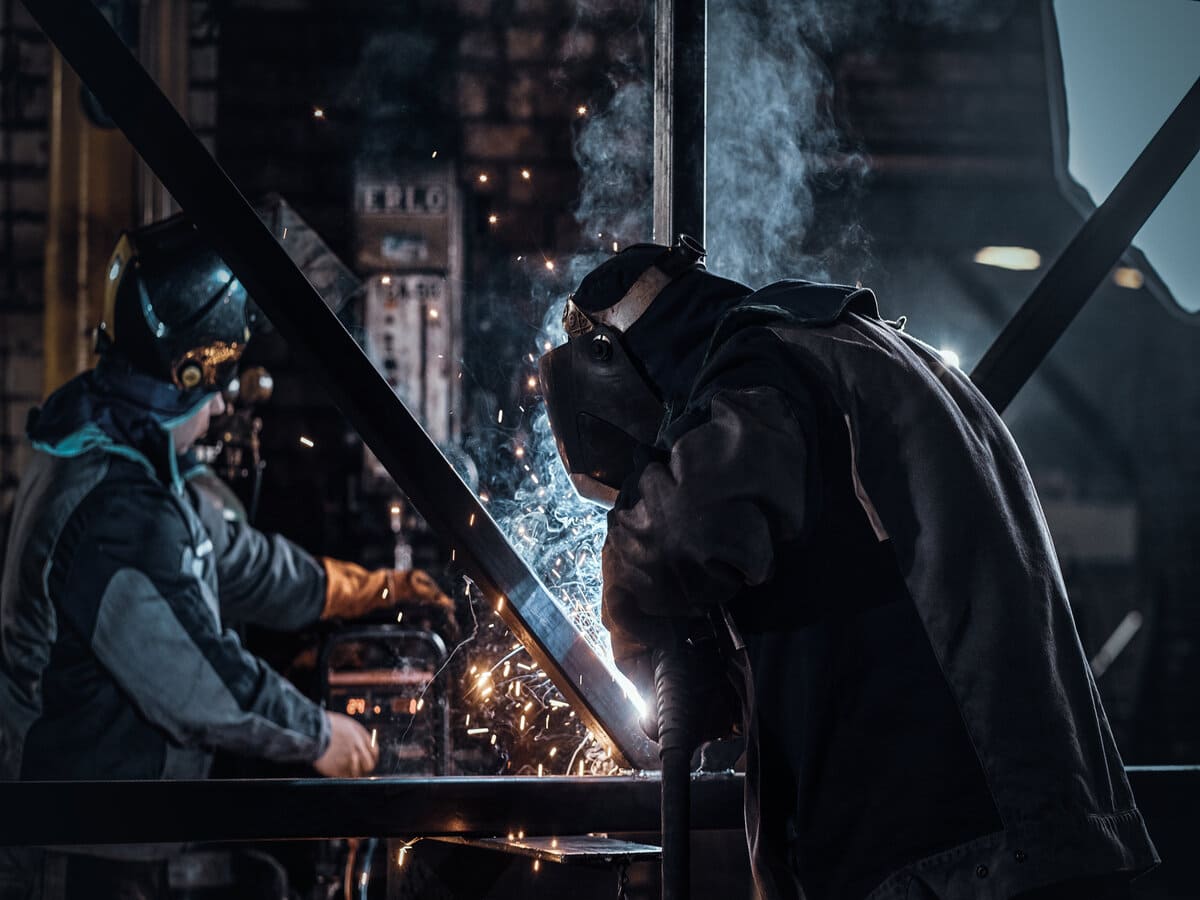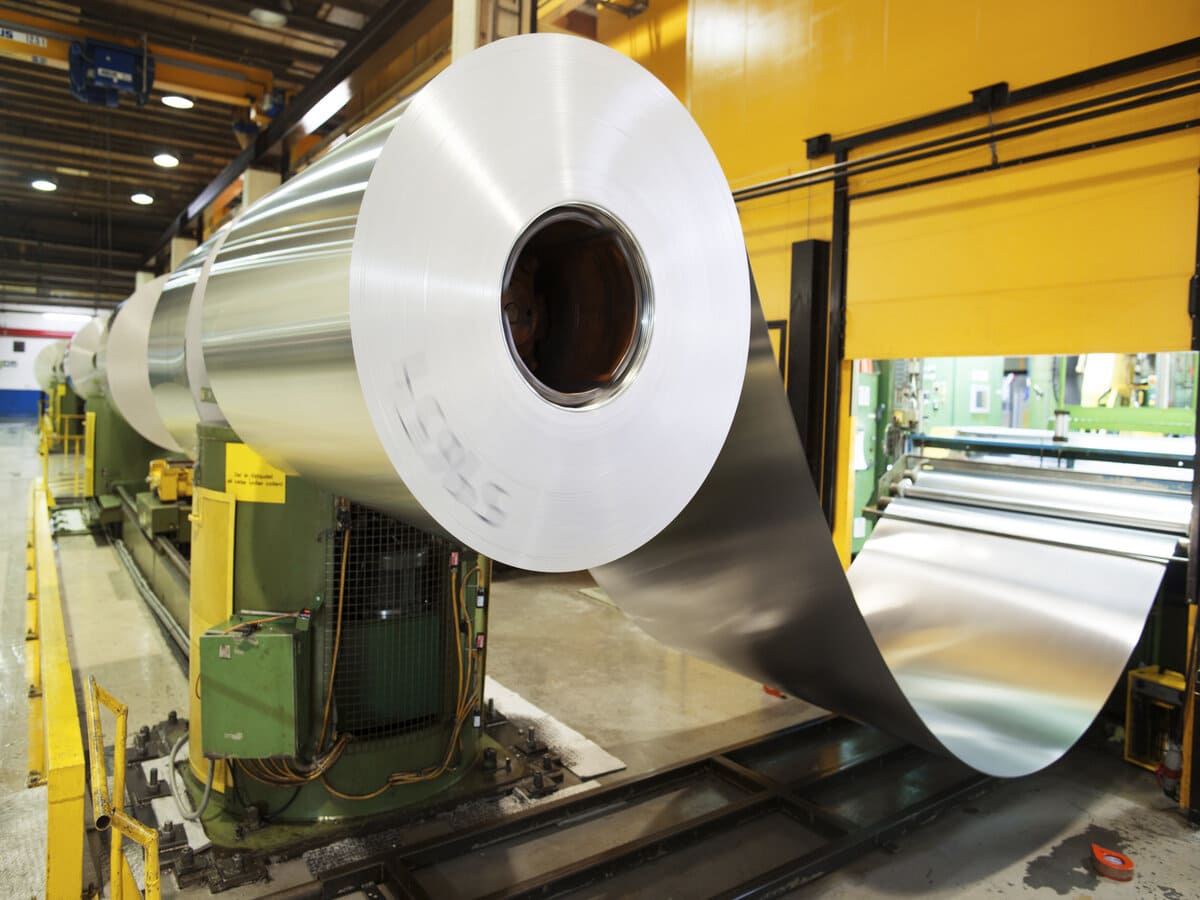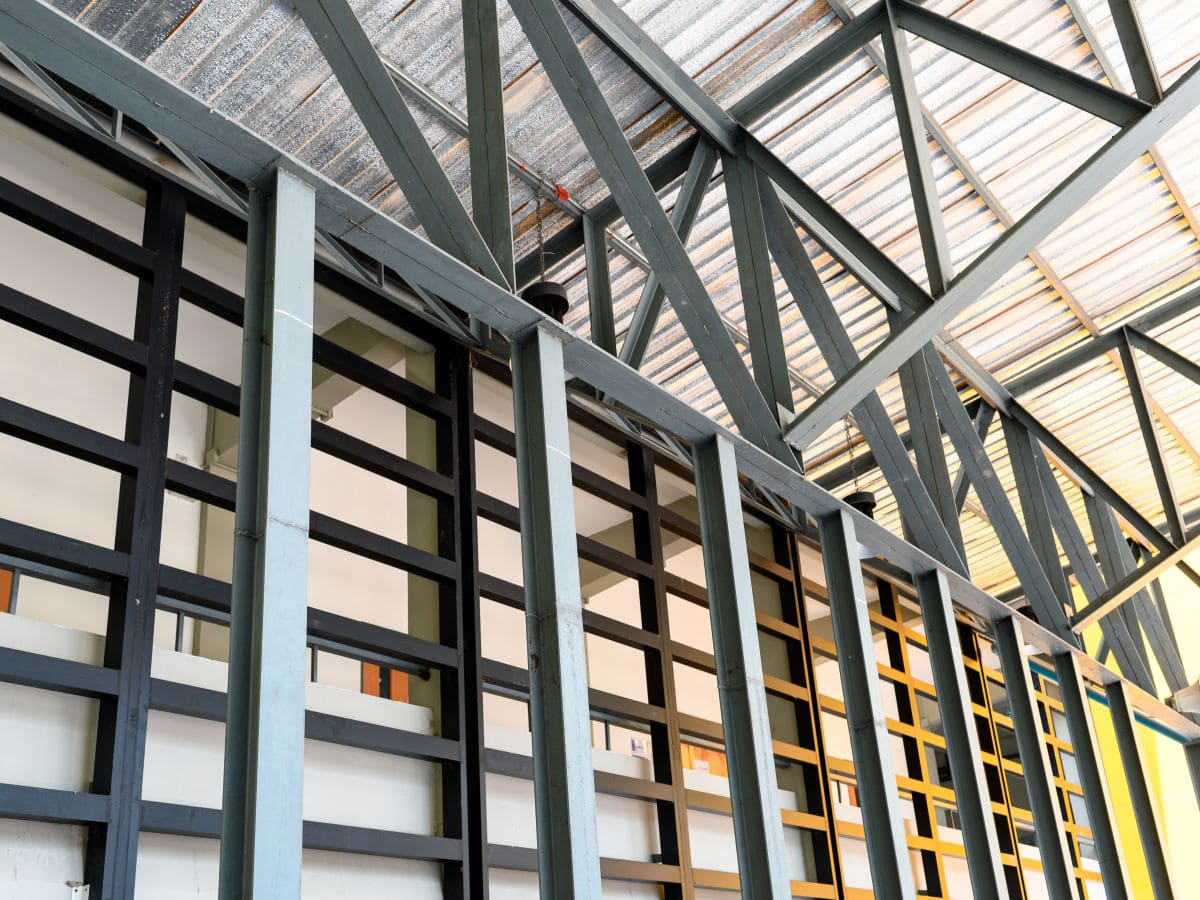Metal fabrication is designing, cutting, shaping, and assembling various metal materials into final products. It’s a phase that can include a variety of specialized techniques such as welding, machining, and forming. Metal fabrication shop creates various products, from kitchen sinks to specialized aerospace components.
Importance of Selecting the Right Shop
Choosing the appropriate metal fabrication shop for your project is not just a logistical step; it’s a make-or-break decision that can affect your project’s quality, timeline, and overall success. A mismatch can lead to costly errors, delays, or project failure. The right partnership ensures skilled artistry, deadline adherence, and a quality end product.
Preliminary Research
Websites and Forums to Check
When you search for a metal fabrication shop, online reviews and recommendations are a good place to begin. Websites like Yelp, Google My Business, and industry-specific forums can provide valuable insights. For more technical projects, specialized websites or forums related to engineering and manufacturing might offer reviews and testimonials that are particularly relevant.
- Red Flags to Look Out For
Be cautious if you notice consistent negative reviews, especially those that mention poor artistry, delays, or unprofessional behavior. In addition, if a company doesn’t have any online presence or reviews, that could be a sign they’re either too new to have a track record or may have something to hide.
- Positive Signs
Look for shops with many positive reviews, particularly those that praise the quality of work, customer service, and timeliness. Specific examples of completed projects like yours indicate that the shop can handle your needs. Positive recommendations from trusted industry contacts can also carry much weight in your decision-making process.

Certifications and Accreditations
- Common Certifications in Metal Fabrication
In the metal fabrication industry, certifications are benchmarks for quality and expertise. Some common certifications you might encounter include ISO 9001, which focuses on quality management systems, and AWS (American Welding Society) certifications, which are specific to welding processes. For more specialized needs, you may look for shops that have ASME (American Society of Mechanical Engineers) or API (American Petroleum Institute) certifications.
- Why They Matter
Certifications are not just badges; they signify a level of expertise and quality control the shop has achieved. After rigorous auditing, they are usually granted by reputable organizations, ensuring that the certified shop meets industry standards. This takes the guesswork out of assessing the technical competencies of a shop, providing an external validation of their capabilities.
Years in Business
- How Long They’ve Been Operating
Looking at how many years they have been in business is important. Companies operating for a long time, say a decade or more, usually have a history you can trace, a portfolio you can review, and customer testimonials you can read.
- Why This is an Indicator of Reliability
Longevity in the business often equates to experience, and with experience comes expertise. A metal fabrication shop that has been around for years likely has a proven track record of delivering quality work and maintaining customer satisfaction. They’ve likely navigated economic downturns, adapted to technological changes, and refined their processes.
Visit the Shop
Facility Tour
- What to Look for in the Facility
When you visit a metal fabrication shop, pay attention to the cleanliness and organization of the workspace. A well-kept area often reflects attention to detail, a critical aspect of metal fabrication. Observe the condition of the equipment; well-maintained machinery is a positive indicator of quality and reliability. Check for safety measures like proper signage, ventilation, and protective gear for workers, as these can reveal the shop’s commitment to safety and compliance with regulations.
- Signs of a Well-Run Operation
A smoothly run shop will have visible workflow procedures and designated areas for different stages of fabrication, such as cutting, welding, and assembly. Efficient use of space and clear boundaries for various tasks indicate effective management. Additionally, observe the employees: Are they engaged, busy, idle, and disinterested? Engaged employees usually signify a well-coordinated operation. Like a well-orchestrated symphony, where each musician knows when to play their part, a well-run fabrication shop has a team that knows its roles, contributing to a harmonious result.
Equipment
- Types of Machinery Available
When touring the shop, take note of the types of machinery you see. Advanced CNC machines, laser cutters, and specialized welding units should catch your eye, as they indicate the shop’s capability to handle complex projects.
- Why the Right Equipment Matters
Having the right tools is akin to a chef having the best kitchen gadgets; it allows for greater precision, speed, and quality in the final product. Lack of appropriate equipment could limit the complexity of projects the shop can handle, affecting the quality and scope of your project.
Employee Expertise
- How to Gauge Skill Level
You can assess employee expertise by asking about their training programs, certifications, or years of experience in the field. Some shops may also be willing to show you examples of work done by their team, which can provide an insight into their skill level.
- Importance of Skilled Labor
Skilled labor is the backbone of any successful metal fabrication shop. Think of it as the difference between a home cook and a professional chef; both can make a meal, but the chef’s expertise ensures it will be of higher quality. A skilled workforce ensures that your project will be executed precisely, reducing the risk of errors and delays.

Assessing Capabilities
Services Offered
- Range of Services You Need
Before choosing a shop, confirm they offer the range of services your project requires: welding, cutting, forming, or assembly. This ensures that the shop can handle your project without outsourcing.
- Limitations You Should Be Aware Of
It’s equally important to understand any limitations a shop might have. For instance, they might specialize in certain materials or types of projects but not in what you specifically need. Knowing this ahead of time can help you avoid hiccups during the project, much like knowing the ingredients in a recipe helps you avoid unwanted surprises while cooking.
Past Projects
- Importance of a Varied Portfolio
A varied portfolio indicates the shop has experience across various projects and materials. This diversity of experience is a good sign, akin to a multi-talented athlete who can excel in different sports, providing confidence that they can adapt to the unique demands of your project.
- Case Studies or Testimonials
Look for case studies or testimonials that showcase the shop’s previous work. These prove their expertise and offer insights into how they handle challenges. It’s similar to reading reviews before buying a product; real-life examples help gauge the shop’s capability and reliability.
Materials Used
- Variety and Quality of Materials
Take note of the types and quality of materials the shop typically uses. Whether aluminum, stainless steel, or specialized alloys, the range and quality of materials on hand can indicate their versatility and commitment to quality.
- Why This Impacts Your Project
The materials directly affect your finished product’s durability, appearance, and functionality. Think of it like cooking with high-quality ingredients; the result is noticeably better. A shop that uses top-notch materials will likely deliver a product that exceeds expectations.

Cost and Time Estimates
Pricing
- How to Get an Accurate Quote
For a precise cost estimate, provide the shop with detailed specifications and any custom requirements you may have. The more information you give, the more accurate your quote will be, much like a detailed grocery list ensures you’ll get what you need from the store.
- Hidden Fees to Watch Out For
Be wary of unusually low quotes, as they may not include all costs. Always ask for a detailed breakdown and inquire about additional fees for material waste, setup, or urgent timelines to avoid catching off guard later.
Turnaround Time
- Realistic Timelines
When discussing timelines, ensure the shop can commit to a schedule that aligns with your project needs. A realistic timeline sets proper expectations, similar to knowing how long a meal takes to cook before you start preparing it.
- Red Flags for Delays
Watch out for vague or non-committal answers about turnaround time; these could be warning signs of potential delays. A shop that can’t provide a clear timeline may be overbooked or disorganized, like a restaurant that can’t confirm your reservation time.
Communication and Customer Service
Responsiveness
- Importance of Timely Communication
Timely and clear communication is a cornerstone of a successful project. Just as you’d expect prompt service at a restaurant, quick and clear responses from a shop indicate professionalism and respect for your time.
- Signs of Good Customer Service
A good sign is when the shop proactively updates you on project status, answers queries promptly, and clarifies any doubts you may have. These are markers of a business that values customer satisfaction.
Flexibility
- Willingness to Adapt
Look for a shop that shows willingness to adapt to changes or special requirements you may have. This flexibility can be a lifesaver, similar to a restaurant that caters to dietary restrictions without a fuss.
- Why This is Good for Your Project
A shop that can adapt is more likely to meet your project needs effectively. Flexible operations can accommodate unexpected changes or challenges, ensuring your project stays on track, like a GPS rerouting you when you miss a turn.

Contract and Terms
Payment Terms
- Common Payment Structures
Common payment structures in the metal fabrication industry include upfront deposits, progress payments, and payment upon completion. Some shops might offer net terms, allowing you a certain number of days to pay after the invoice is issued.
- What’s Fair and Reasonable
A fair payment schedule balances the financial interests of both parties. Much like a well-planned budget helps you manage finances, a reasonable payment structure should not strain your cash flow while ensuring the shop has the funds to carry out the work.
Legal Aspects
- Warranties and Guarantees
Before signing contracts, check for warranties or guarantees on artistry and materials. This is your safety net, akin to your home or vehicle insurance.
- Risk Mitigation
The contract should outline how risks, like delays or cost overruns, will be managed. Effective risk mitigation clauses protect both parties and act as contingency plans, like having a spare tire for a road trip. This ensures that if issues arise, there’s already an agreed-upon method for resolving them.
The Moment of Metal Truth: Final Decision
Take time to evaluate all the information you’ve gathered, like weighing ingredients for a complex recipe. List each shop’s strengths and weaknesses to visualize which aligns most closely with your project’s needs. Once you’ve weighed the pros and cons, trust your research and make an informed decision. It’s similar to finally choosing a destination after researching multiple vacation spots; you’re ready to commit based on the best fit for your specific wants and needs.

Frequently Asked Questions
Should I Always Go for the Shop with the Lowest Quote?
Not necessarily. A lower quote may not include all the needed services or indicate lower-quality materials. Always ask for a detailed breakdown and weigh this against the shop’s experience, expertise, and past projects.
How Do I Assess the Skill Level of the Employees?
You can inquire about their training, years of experience, and any certifications they might have. Some shops might also showcase their workers’ craftsmanship in their portfolios or through case studies.
Can a Shop Specializing in a Different Industry Still Handle My Project?
It depends. If your project requires highly specialized skills or materials that the shop isn’t familiar with, it’s safer to look for a shop that specializes in your industry. However, a well-rounded shop with a varied portfolio could also be adaptable to meet your needs.
How Do I Know if a Shop’s Timeline is Realistic?
Compare the shop’s proposed timeline with industry norms for similar projects. If their timeline seems overly optimistic, ask how they plan to meet it. A clear, well-justified plan indicates a more realistic timeline.
What are Red Flags when Choosing a Metal Fabrication Shop?
Beware of poor communication, a disorganized facility, outdated equipment, or a lack of proper safety measures. These could be signs of unreliability, like red flags when dating signals potential future issues.
How Do I Know if a Shop can Handle the Complexity of my Project?
A: Assess their equipment, staff expertise, and past projects. They’re likely a good fit if they’ve completed projects of similar or greater complexity. Think of it as choosing a university based on the courses and majors they offer; you want to ensure they meet your educational needs.





